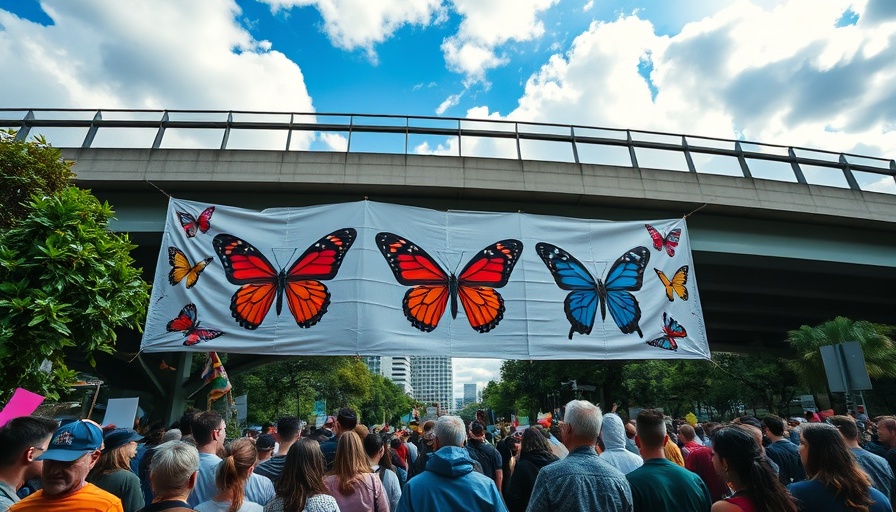
Protecting the Community: The Rise of ICE Patrols
In San Diego’s Logan Heights, a dedicated group of volunteers braves the early morning chill to patrol their neighborhoods, keeping a vigilant watch for signs of Immigration and Customs Enforcement (ICE) activities. Formed in response to the rising fears of mass deportations under former President Trump's administration, these community patrols serve as a beacon of hope and solidarity for frightened residents. Equipped with walkie-talkies and megaphones, volunteers report sightings and inform their neighbors, seeking to mitigate the anxiety that permeates the immigrant community.
The Emotional Toll on Immigrant Families
As tensions heighten over immigration policies, fear has seeped into the everyday lives of many families in San Diego. Adriana Jasso, a volunteer from the advocacy group Unión del Barrio, explains the emotional turmoil faced by these communities. Children are kept home from school, families forgo essential appointments, and grocery shopping becomes a high-stakes endeavor, all due to the fear of potential ICE encounters. “The ability to inflict pain on millions of people, it’s a lot,” Jasso expresses, highlighting the pervasive climate of uncertainty triggered by government policies that target undocumented individuals.
A Historical Context: Community Response to ICE
The practice of community patrols isn't new but has evolved significantly over the years. Volunteers from Unión del Barrio have been conducting these patrols since the tumultuous 1990s, giving them a depth of experience in understanding ICE tactics. Throughout different administrations, their motivations have shifted but remain centered around a consistent mission: protect their neighbors. Marysol Duran, a high school teacher involved in the patrols, emphasizes that education and community safety are central to their efforts, reinforcing the role that volunteers play not just as watchdogs but as parts of a larger support system for families grappling with fear and anxiety.
Real Stories of Impact
The personal connections fostered during these patrols bring a human face to the statistics about deportations. Romuel, a volunteer who has been active for decades, recalls a recent incident where he calmed a community member’s fears after investigating a suspicious vehicle. “She said, ‘Gracias por cuidarnos,’” he recounted, illustrating the gratitude and trust built between the volunteers and the households they protect. Such interactions affirm the sense of community that becomes crucial in times of crisis.
The Role of Social Media in Community Vigilance
Social media serves as a double-edged sword in the context of ICE operations. While it allows for rapid information sharing and reaffirms community ties, it can sometimes spread misinformation, leading to unnecessary panic. Volunteers tirelessly work to verify reports of ICE presence, demonstrating the importance of clear communication in combating fear. False sightings not only disrupt daily life but also amplify the psychological strain on families who feel they must remain on alert at all times. As Jasso notes, clarity and reality-checking are vital components of their grassroots advocacy.
Future Prospects: What Lies Ahead?
Looking forward, the volunteers at Unión del Barrio remain committed to their mission as they anticipate shifts in the political landscape surrounding immigration. As community fears persist, their resolve strengthens. While policies may change, the community's need for protection and solidarity remains constant. These patrols could evolve to encompass additional resources such as legal aid or mental health support, further solidifying their impact.
Final Thoughts: Standing Together in Times of Fear
In the face of adversity, communities like those in San Diego are crafting their narratives of resilience and advocacy, emphasizing safety, education, and interdependence. To keep up with these critical efforts and ensure that local neighborhoods remain safe, it is essential for San Diego residents to engage, support the volunteer initiative, and advocate for inclusive policies. By standing together, they can cultivate a community environment that fosters security and hope amidst uncertainty.
 Add Row
Add Row  Add
Add 




 Add Row
Add Row  Add
Add 

Write A Comment